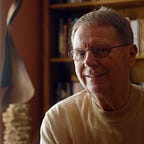Which career fields will be in demand in the next 20 years, and why?
I have no idea, and think that soothsayers who do are victims of egomania at its worst.
Here’s why: We — the citizens of the world — are well into a new era in which creativity, insight, and their useful applications are valued more than rote proficiency in a specific skill.
Ask yourself: Why is Apple valued so highly by its stockholders and users of its products? Why are houses and other buildings designed by Frank Lloyd Wright so distinctive, esteemed, and expensive? Why is the Mona Lisa — or a Jackson Pollack — worth many millions?
Perhaps, based on the above, lucrative careers of the future might be Innovation Coach, or Thinking Coach, or Professor of Creativity. Their wisdom will be useful to all practitioners of every profession.
I know of a few such people, starting with Drs. Linda Elder and Richard Paul at The Foundation for Critical Thinking. In one of their publications, they posit, It is the nature of the mind to create thoughts, though the quality of that creation varies enormously from person to person, as well as from thought to thought.
I am a writer and teacher of writing to scientists and engineers. I believe that good writing is the only way we can make sense of our worlds and unleash our creativity. (You can imagine how much I deplore STEM.) In my book, The Power of Writing Well, I say:
Good writing creates information, and, therefore, good writing creates intelligence and literally forces that elusive human talent that we have labeled ‘creativity’.
The methodical, evolving process of writing actually forces new thoughts to emerge from our minds, allowing us to make sense of our surroundings, our lives, and, on a smaller scale, the document that we are composing at the moment.
In essence, good writing gives our minds a disciplined means of expression and conjuring up that great idea that separates the ordinary from the extraordinary. It is a way to discover what we are thinking. Perhaps E.M. Forster, 1879–1970, the English novelist best known for A Passage to India, said it best: ”How do I know what I think until I see what I write?”
